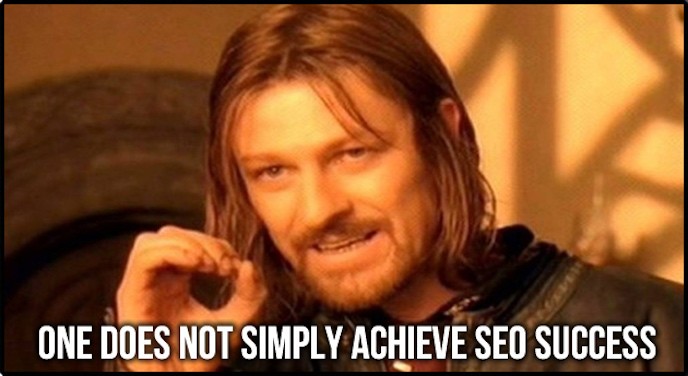I would like to thank you for joining me on another one of my cool series. Over the last several months we’ve been looking at several factors that contribute to a successful SEO campaign. We explored factors like link building, authority blogging, high quality content, etc. However, with every plus side there’s always a negative so I want to explore some different elements this time around. For example, I feel in order for you to perform an optimal SEO campaign you have to know the elements to focus on and those to disregard. If your an experienced blogger or one getting started then this information will be very helpful to you.
This will be a “7†part series where I’ll be going over the fundamental factors why some SEO campaigns are a success and others simply fail before they get started.

Number 1 – No Realistic Goals
In order for you to create a successful optimization plan you have to have clear cut plan. However, I’ve noticed that many people simply jump right in without having an objective in sight. What you don’t know is those who have raised through the Google ranks have had a plan from day “1†and stuck to it no matter what. There plan wasn’t only written down in fine points, but was very realistic. The key is to set a “realistic†plan, something, that includes small objectives based on your outlook for the next week or month. Even if your objective is to make 1 million dollars from blogging, you have to split this down into smaller goals so they each are motivation along the way when completed. Many people write their objective as making “1 million†dollars and then when they fail to see results within the first 6 months they get de-motivated. It’s important to set small goals that lead up to your ultimate objective. Each goal that you complete will be motivation and these smaller ones are more realistic.
An Example,
Here’s what I do when I’m working on a clients project. I’ll start by reviewing their website and I have a list of the specific elements I look for. I’ll have small gaols written for the entire week in regards to this EXACT project. I’ll write things like…
- Check on-page SEO
- Analyze different pages
- Analyze Keywords
- Check for existing backlinks
- Check if website and pages have been indexed
This will be “1†weeks work and I’ll check each element off along the way. Each one I complete provides an element of productivity and motivation.
Next,
When it’s time to start the link building process, I’ll spread this into “3†different sections: Writing articles, building websites and publishing content. I spend about a week doing each and will use the 4th week to review my checklist making sure I’ve taken care of all the important elements. Obviously each article has “anchor text†links I use for building authority links. Again, as each step is completed, I’ll check it off the list and this will provide motivation as I know I’m getting close to my goals. Having everything spread out is realistic as they can be completed within a specific time frame. However, anything that’s hard to put a time limit on will be considered unrealistic.
The process I’ve just outlined above is a much better step-by-step approach to completing my end result. If I was going to simply write “reach #1 in Google†then it’s a broad goal and unrealistic since it’s hard for me to put an actual time frame. I personal try to avoid anything I cannot control and this is why I prefer to set smaller more realistic goals.
It’s important when your setting your goals you spread everything into smaller elements making sure your able to complete them in a designated time frame. Avoid anything you cannot put a clear cut time limit on and make sure each factor leads to a bigger end result. Here’s one final example,
If your plan is to be earn 1 million dollars per month from your blog then approach it using the following…
- In 6 months start earning 1, 000/mo
- In 12 months start earning 1, 500/mo
- In 24 months be making 10,000/mo
- Etc
The above is still very broad as I would even narrow it down month to month to keep it more motivational and realistic.
Decide what’s important to you and what your willing to do to achieve it. Write it out then if you can divide it into smaller goals. Do this every month and analyze your results. Your objective should be to always be moving forward NOT backwards.
